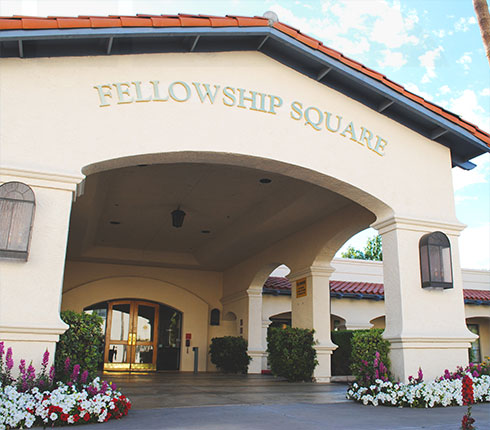Starting a New Hobby: Tips for Seniors
When seniors reach the golden years, they finally have more time for all the relaxation and enjoyment that comes well deserved after a lifetime of hard work. Interestingly enough, many active seniors find the retirement life, and the slower pace, a bit too quiet. If you or a senior in your life needs a fun way to fill up their days, starting a new hobby can be just the thing to keep their minds and bodies engaged. Fellowship Square offers three easy tips to find the right hobby and how to get stared.

1. Get in the Game — An active hobby serves both mind and body, and oftentimes can be a social occasion, too. Sporty hobbies such as tennis or golf typically involve another person, which doubles of the fun of both the hobby and the physical aspect of the event. Pickleball, ping pong, or bocce ball are other fun and not-too-strenuous sports that can be done for enjoyment and activity a few times a week (with doctor’s approval, of course!). Try to find a hobby that offers a physical and mental workout with the added bonus of a social outing. If you haven’t been active in a while, take it slow and don’t be afraid to get some coaching before jumping into your sport of choice!
2. Brain Teasers — Keeping the mind sharp in the gold years is important for retention of memory and cognition. The Alzheimer’s Association notes, “Mental decline as you age appears to be largely due to altered connections among brain cells. But research has found that keeping the brain active seems to increase its vitality and may build its reserves of brain cells and connections.” Playing word games such as Scrabble or doing Sudoku, crosswords and math puzzles can keep those brain cells highly functioning. A study published in Science News also found that a rich vocabulary can protect against cognitive deterioration — so make time for reading, take a course at a local community college, or do memory exercises. One such exercise, known as PQRST can help organize and retain written information, from books or documents, for example. The acronym stands for the following:
- Preview. Skim the content and identify the main points.
- Question. Create questions that identify points you still need answers to.
- Reread. Review the material again to find answers to your questions.
- Study. Go over the questions to ensure comprehension.
- Test. Quiz yourself on the answers to your questions to ensure proper understanding of the material.
Consider creating a hobby based around these brainy activities. For example, host a book club once a month, initiate “game night” in your neighborhood or community, or challenge friends and colleagues to word apps on your smart phone such as Words with Friends or Word Brain.
3. Memory Making — Quiet hobbies like knitting or scrapbooking are great for more sedentary seniors, and they can be done alone or with a group. The wonderful thing about both these hobbies is you can create a beautiful keepsake that can be passed down to members of your family, friends and loved ones as special gifts. There are endless tutorials online via YouTube, and specialty stores that can help you get started without a huge initial financial investment. Gather your friends for a knitting session or take a scrapbooking workshop at a local craft store to get started.
Fellowship Square encourages seniors to explore many different hobbies until they find just the right one that they truly enjoy. Any physical, mental or social aspects of the hobby are icing on the cake!

